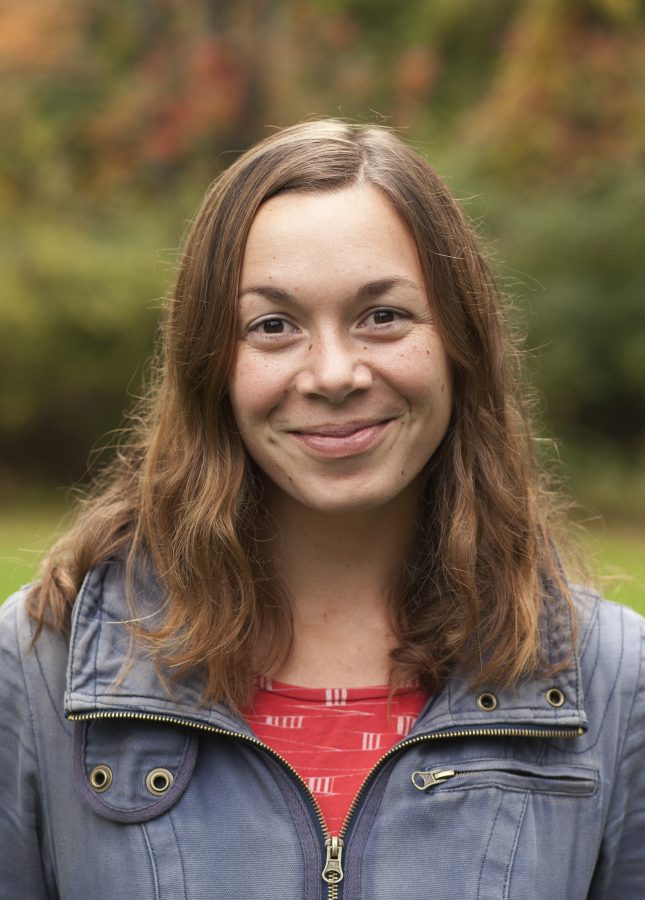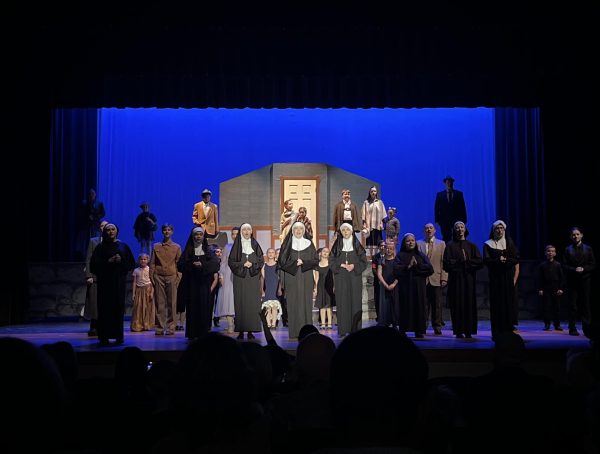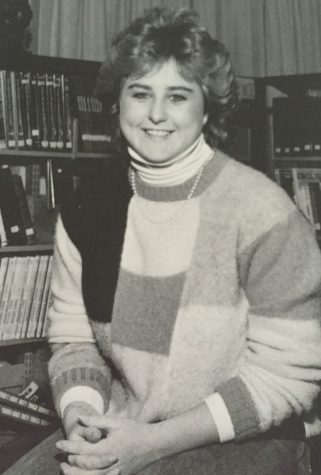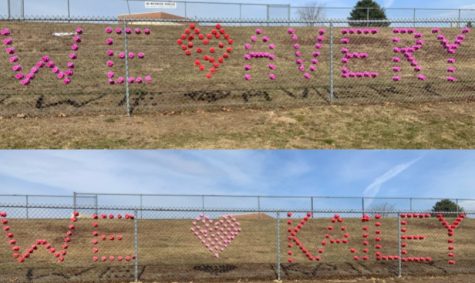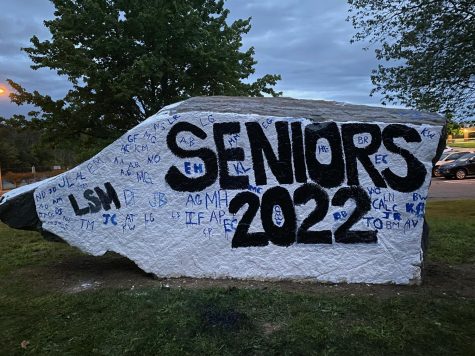Mills graduate wins journalism’s top prize
Harwinton native rewarded by her occupation
Mills alumna Jessica Rinaldi won the Pulitzer Prize April 18. Contributed photo
May 12, 2016
Every small town has a story, this Jessica Rinaldi knows well.
Rinaldi’s own story began in the rural town of Harwinton, Conn. – with a population of less than 7,000 residents. She attended Lewis S. Mills High School, had an average high school experience that she described as unexceptional, and moved on.
Little did she know, though she then longed to get out of the small town she grew up in, another small town story would lead her to her greatest achievement. On April 18, the 1997 Mills graduate learned that she had won the top prize in journalism, a Pulitzer for Feature Photography. Rinaldi received the honor for her photojournalism chronicling the Wolfe family in rural Maine. Through her photographs for The Boston Globe, where she works, Rinaldi revealed an unspoken atrocity that is secretly happening around the Unites States.
When you hear the word “poverty” what comes to mind? Third world country, an inner-city ghetto? Well, while it is true that poverty occupies these places, Rinaldi uncovered the hidden poverty within the deep woods of Maine, where she spent time with a family struggling to make ends meet.
In covering the story, Rinaldi was not aiming for this award, or any reward, as a matter of fact. She was just trying to do her job and bring forth real-world problems.
Rinaldi’s award carries with it not only prestige but a $10,000 prize. But in a recent interview via email, she explained that, though exciting, she felt she hadn’t done enough to help the Wolfe family. Journalism ethics require that reporters and photographers maintain a professional distance while covering subjects, to maintain objectivity.
“It was tremendously difficult,” she said.
Rinaldi offered one poignant example of just how hard it was to be a bystander and witness this type of poverty while remaining neutral.
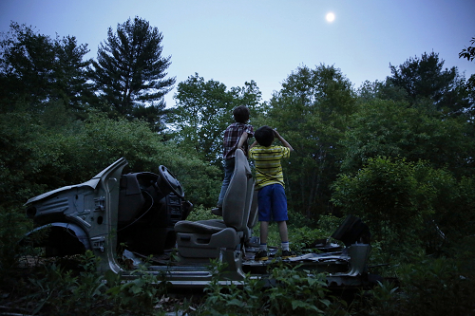
“On one occasion, the reporter and I went with Strider (the 6-year-old whose family she followed) to school. The PTO was sponsoring a fundraiser at lunch, for a dollar each child could get a grab bag that was filled with pencils and erasers. Strider didn’t have a dollar and couldn’t get a grab bag. You could just see the disappointment in his face,” she said, adding: “It broke my heart not to be able to give him that money.”
She explained why she had to resist helping: “As a journalist, you aren’t allowed to alter the situation that you’re there to document, everything has to happen as it would if you weren’t there. You have to believe that telling the story will help. If you don’t believe that, you just won’t be able to do this type of work.”
Rinaldi might have wanted to help right then and there, but in the long run she did her job to great effect. After publishing his story, people came forward and offered help.
“Readers reached out to us wanting to know how they could help. The editor of the paper found a lawyer who set up a trust fund for Strider and his brother, Gallagher, and it raised tens of thousands of dollars,” said Rinaldi. “A GoFundMe account raised over $20,000 more.”
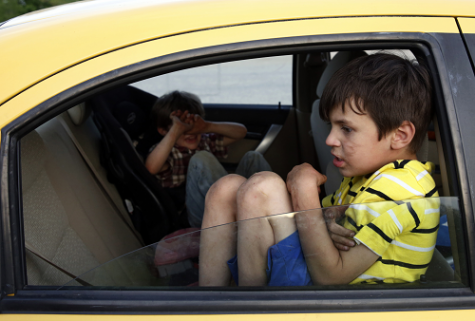
When word came that she won a Pulitzer Prize for her work, Rinaldi was out to lunch. Her boss called and told her something like, “Jess, you won the Pulitzer.” She was in disbelief. She thought that he was lying. Then, she checked her phone and the flood of messages confirmed it: she had won. She pulled over her car, sat on a nearby stone wall and spent what seemed like hours poring over congratulatory texts messages, emails and phone calls.
“It was all very surreal,” said Rinaldi. “It still is.”
Back in her days at Mills, Rinaldi could have never foreseen such success.
She recounted attending the high school and just wanting “to get out of town” after graduation – much like every other 18-year-old at the time.
“I don’t think anyone would have chosen me most likely to succeed in high school. I got good grades, but I certainly wasn’t going to Harvard,” said Rinaldi, fondly recalling English teachers Ms. Fournier and Mr. LaFleur as favorites. “There were lots of teachers who seemed drawn to the kids who were standouts, I think Mr. LaFleur and Ms. Fournier recognized that the rest of us might have needed the attention a little bit more than those kids did. I don’t really remember either of them having favorites, they were kind to everyone and I really appreciated that.”
Being an average student with big aspirations, Rinaldi learned fast which teachers she needed to surround herself with in order to not be overlooked. Fournier remembers Rinaldi, as well, and still has a small trinket perched at the front of her classroom that the former student gave her.
After graduation, Rinaldi dreamed not only of leaving her tiny town, but also of attending college to become a microbiologist. But like many students on the path to their futures, the road can take sudden turns. She soon found herself in a new romance, with a camera.
“I did not own a camera at the time, which seems crazy to me now. I borrowed my roommate’s camera, went out and shot a roll of film and I was hooked,” Rinaldi said. “When somebody told me about photojournalism, I knew immediately that was what I wanted to do.”
Soon Rinaldi began to tell stories through a lens. Through images like those of undocumented teenage immigrant Mario Rodas laughing with friends, she uncovers the truth behind the smiles. Rinaldi managed to share the young man’s story with the world, explaining why and how he isn’t just another smiling face, through a story about the faces behind deportation efforts.
While Rinaldi’s work may seem just pictures and captions, she is doing more than documenting moments. She brings light to truths about the world around us, in the end making drastic differences in the lives of people we look past every day. Rinaldi offers inspiration to those following similar, familiar paths, about to graduate from seemingly small lives in small towns, that anyone can strive to truly make a difference.in the world, and in other people’s lives.
